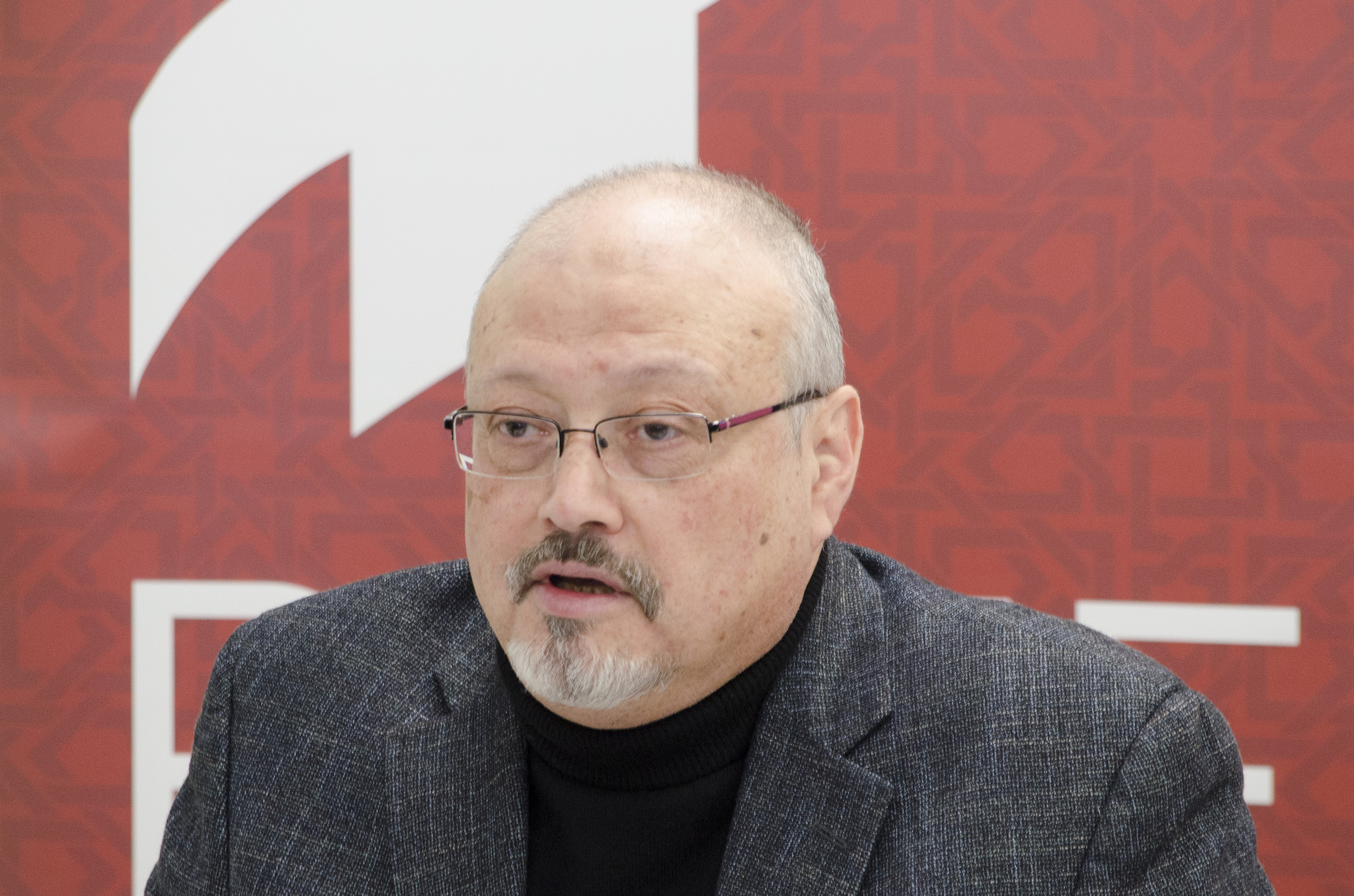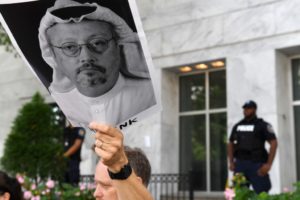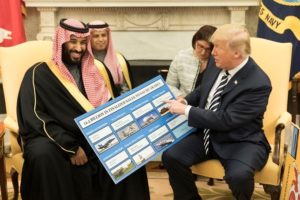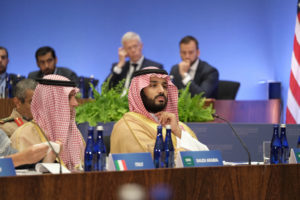When thinking about the ramifications of Jamal Khashoggi’s violent murder I am reminded of the title of a TED talk given by writer Chimamanda Ngozie Adichie, “The Danger of a Single Story.”
The single story told about Khashoggi is that his death was exceptional and its graphic manner is what should draw our attention. This retelling is riddled with dangers both in the focus on his singular death obscuring wider Saudi repression and also for ignoring the crucial geopolitical implications of his murder in favour of its sensationalist details.
Khashoggi’s death and subsequent events illustrate not only the complex politics of Saudi Arabia, but also the often murky geopolitical interests of Turkey and the United States in its affairs. Each of these is important to understanding why the situation has played the way it has, and also aids prediction of how Western-Saudi relations might be conducted, MBS’ likelihood of survival, and how power balances might shift in the region.
It wouldn’t be too brazen to say that Khashoggi, as a journalist who wrote cutting analysis of the region, would have found these aspects the most revealing and valuable. In part because Khashoggi was a journalist, not the polemicist or dissident sometimes referred to as. His critical postures of the Kingdom were more analytical than polemic, and were backed by knowledge of the intricacies of Middle East politics coming from his years as a Saudi courtier.
In the Photo: A poster of Jamal Khashoggi in front of the Embassy of Saudi Arabia in Washington. Photo Credit: Washington Post/Matt McClain
REFERRING TO KHASHOGGI AS A JOURNALIST is not only a comment on the evidence or knowledge-base of his thoughts but also is a pertinent distinction that is often missed in the lexicon of 24-hour reporting. Reference to Khashoggi as an Al-Watan journalist endows him with a set of unspoken rights, which those labelled dissidents or radicals are not custom to. When an authoritarian government cracks down on activists or protesters it can attempt to justify doing so for stability’s sake, whilst, in the West at least, violence towards journalists is seen as an unjustifiable suppression of free speech.
Therein lies the tinder that caused the Khashhoggi story to catch light whilst a continued repression of legitimate free speech in Saudi and across the region, most contestably in Turkey and Iran, lays smouldering so as to be invisible to unwilling eyes.
And yet, to claim this much ignores every event that has occurred since we first caught whiff of this story. It ignores the righteous propagation by Turkey of intelligence on Khashoggi’s disappearance, timed to embarrass Saudi and juxtapose itself as a liberal protector when compared with the Kingdom. It ignores the shifting responses made by Western allies to the Kingdom, and the benefit of doubt they have tried to give to MBS at each new revelation.
To fully understand these consequences and how they will shift future relations requires a deeper contextual analysis and one that looks historically at these ties between nations.
Related Articles:
![]() “G20 SURPRISE SHOW: TRUCE WITH CHINA, SUMMIT SHAPED BY EUROPE”
“G20 SURPRISE SHOW: TRUCE WITH CHINA, SUMMIT SHAPED BY EUROPE”
BRITISH IMPERIALISM IN THE GULF OFFERS A TOUCHSTONE for any modern understanding of the region. Whilst the contemporary region is firmly aligned with the U.S., it was Britain’s interest in maintaining the power of the East India Company that began Western interventionism, starting with the seizing of the Strait of Hormuz in 1820.
Then began the designation of treaties with most gulf states, except notably Persia. These treaties were designed to secure the ruling families’ cooperation in ending piracy in return for their secure ruling, thus guaranteeing dependence. The progressive encroachment into all affairs of these Arab territories positioned Her Majesty’s Government to fully exploit the discovery of oil to the benefit of British companies, this vital discovery thus cementing their involvement in the region even as Indian independence removed their initial purpose and the empire elsewhere withdrew.
Many of the practises implemented by the British in the Gulf and elsewhere, documented in an interview with David Wearing, have been used and recycled by other states until this day. This starts with the division of ethnic groups via favouritism for minority groups, followed by the placement of foreign officials in influential government positions, and leading to weakly supported and easily replaceable rulers acting dictatorially to hold onto power and dependent on outside powers.
This imperilled strong-man dynamic leads to further exploitation; foreign powers’ monopolization of the sale of goods, arms and services required for weak rulers to remain in power; the exploitation of natural resources under the premise of the domestic state’s profiting; the encouragement of the investment of petrodollars into the imperial powers’ domestic economies to ameliorate currency deficits.
“Repeated across the globe, this imperial dynamic offers an alternative answer to the orientalist fallacy that Gulf authoritarianism comes from a regionally specific culture dismissive of human rights.”
Thus, despite Britain’s well-documented 1971 withdrawal “East of Suez,” it has remained influential in the region and has been joined by the United States, after it revoked its anti-imperial stance of the 1950s in light of the cold war’s broiling up. Repeated across the globe, this imperial dynamic offers an alternative answer to the orientalist fallacy that Gulf authoritarianism comes from a regionally specific culture dismissive of human rights.
NOWHERE ELSE IN THE REGION HAS THE U.S. MAINTAINED THIS IMPERIAL STRATEGY, but Israel. Whilst Saudi rulers have been able to strengthen their legitimacy through a strong welfare state funded by petrodollars, they have remained a rentier state reliant on U.S. support for Aramco given in return for Chevron, Dow Chemical, and ExxonMobil’s unprecedented oil-field access. They have relied on U.S. protection in the 1991 Gulf War and had worked closely with the U.S. in funding the Mujahedeen in Afghanistan prior to that.
Additionally, U.S. corporations are heavily engaged in Saudi Arabia’s internal affairs both through the sale and training of military equipment worth more than $65 billion from FY2009 through FY2016 and also through the influence of U.S. consultancies advising the Saudi government worth up to $1.3 billion going into 2016.
In the Photo: President Donald Trump, holding the board that shows how much business the Kingdom of Saudi Arabia generates in the U.S., and Crown Prince of Saudi Arabia Mohammed bin Salman at a meeting in the Oval office at the White House, Tuesday, March 20, 2018. Photo Credit: The White House
MUCH HAS BEEN MADE OF THE DISRUPTIVE QUALITIES OF TRUMP AND MBS to their domestic political situations and their relations with others. Whilst in other places this might have been somewhat true, such is the strength and depth of U.S.-Saudi ties that very little has changed.
A few key examples have demonstrated this. Saudi Arabia has only become more reliant on the U.S. as America’s rising oil exports have helped reduce oil prices globally. Additionally, defence and domestic policy cooperation have only increased with Trump’s 2017 trip concluding in arms deals expected to total $350 billion over a decade and the strong influence of McKinsey in MBS’ signature domestic policy of “Vision 2030.”
In return MBS has continued to prove useful in the region, as counterbalance to Iran and even building unofficial ties with the staunch U.S. ally—Israel. He has continued the kingdom’s stance as a compliant oil-producing nation and has gone to great lengths to improve its image abroad with token domestic reforms and increasing the money spent on U.S. lobbying efforts from $10 million in 2016 to $27.3 million in 2017.
Despite MBS’ rhetoric, the reality for most Saudis under his rule has been a continuation of the costly war in Yemen that he started as defence minister, increasing crackdowns on dissidents, and a centralization of power. Yet, much of this has been both obscured and erroneously reversed in Western narratives, both liberal and conservative, of Saudi as a result of its investment in Western consultancies and lobbying. No better is this summed up than in Georgetown Professor, Abdullah Al-Arian’s, detailed Twitter thread, “70 years of the NYT calling Saudi royals reformers.”
“The journalist’s knowledge of the secretive inner-workings of the House of Saud must have been viewed as seriously volatile for the ordering of such a reckless political execution.”
Madawi Al-Rasheed, Saudi national and scholar, speculates that it was the presumed threat that Kashoggi posed to this carefully constructed façade, accelerated under MBS, that might have sealed his fate. The journalist’s knowledge of the secretive inner-workings of the House of Saud must have been viewed as seriously volatile for the ordering of such a reckless political execution.
And yet, the staunchest evidence for MBS and Trump’s relationship being a continuance of the status-quo has been his statement that the U.S. will remain a “steadfast partner” to MBS despite intelligence reports indicating the Saudi leader’s creation of a destabilizing international assassination program. However, through the efforts of Turkish President Recep Erdoğan, much of the American establishment has recently begun to speak over the hushing of President Trump in public condemnations and legislative resolutions.
AS WITH KHAMEINI IN IRAN, WHO HAS CUNNINGLY PROFITED OFF CRISES IN SYRIA AND YEMEN to project Iranian power regionally, Erdogan in Turkey has astutely used Saudi’s diplomatic crisis to burnish its own image. Turkey’s motivations are reminiscent of those behind its decision to limit asylum seekers heading to Europe, which it signed in 2015, and posture towards both domestic and international audiences.
To international audiences Erdogan is positing himself in juxtaposition to MBS as a compliant protector of Western liberal press freedoms and also a valuable ally. To domestic audiences Erdogan can demonstrate his influence abroad, such that he can manipulate both the media and foreign relations of other powerful states.
Again, a deeper historical analysis illuminates a geopolitical rivalry that may have also reinforced Erdogan’s opportunism.
Both Turkey and Saudi Arabia argue, citing their histories, that each is the rightful heartland of the Islamic empire. The Turks lay their claim on their land holding host to the last great Islamic empire of the Ottomans whilst the Saudi’s argue supremacy based on the unusually high concentration of Islamic holy sites in their territory. There has yet to be sufficient interest overlap for tensions to arise, but both recognize how the other’s accumulation of power behind its own socio-political model may represent an existential threat to its own.
The Saudi Monarchy fears the success of the Turkish model of governance above others, because it is a Republic, because it is relatively cosmopolitan, and because of its tokenistic vesting of political legitimacy in Islam and its people. These qualities have garnered admirers across the region like Qatari and Iranian elites whose absorption of these ideas into their system would pile pressure on Saudi to reform and from Saudi Islamic radicals keen to implement them at home.
In the Photo: Deputy Crown Prince, Second Deputy Prime Minister and Minister of Defense of the Kingdom of Saudi Arabia, Mohammad Bin Salman bin Abdulaziz Al-Saud participates in the Counter-ISIL Ministerial Joint Ministerial Plenary Session, at the U.S. Department of State in Washington, D.C. on July 21, 2016. Photo Credit: U.S. Department of State
THIS THREAT MUST BE WEIGHED AMONG OTHERS AS KING SALMAN CHARTS THE COUNTRY’S NEXT STEPS. Whilst the threat of the Turkish Model remains consistent it is the more immediate question of what to do with his son that will be most concerning. Although news has mostly died down and Trump’s support is a reassurance, recent boycotts of “Davos in the Desert” and the bipartisan Senate agreement on the U.S. retreating from Saudi’s actions in Yemen show damage to Saudi reputation and influence.
Whilst King Salman has form in deposing and replacing Crown Prince’s, as with Muhammad bin Nayef, this seems unlikely in MBS’ case. In no small part because Bin-Salman is his son and not his nephew, and thus his dismissal would look poorly on the King himself and require an admission of poor judgement, and possibly poor genes.
Given the recent announcement of Kushner’s involvement in keeping MBS’ political career alive, it looks unlikely that the administration will try and pressure Bin-Salman’s dismissal and even less likely that they would do so because of congressional outrage. However, the invocation of the War Powers Resolution and its potential to derail Saudi war efforts in Yemen may yet bear its toll, and will certainly lead to increasing efforts by the Saudi Coalition to push for victory in the conflict before support is withdrawn.
Amidst this story there are the ongoing skirmishes between the GCC and Qatar, as Saudi seeks to tighten relations with Kuwait, and Jared Kushner’s Middle East Peace Negotiation Plans which seem to require tightening the often contentious Gulf-Israeli relations to isolate Palestine and encourage it to negotiate. How this will play out exactly is unclear, but Khashoggi’s talents in illuminating the webbed ties that bind up the Middle East have continued with his passing, as they did during his life.












